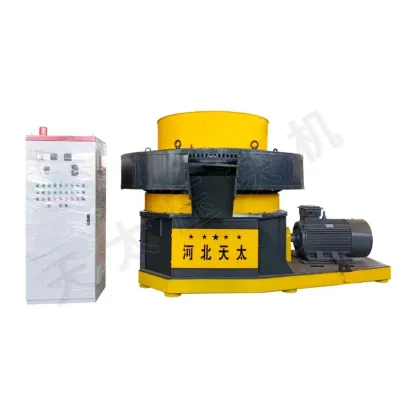Is Your Sawdust Briquette Quality Consistently High?
Why Consistent Quality Matters in Sawdust Briquettes
Maintaining a high and consistent quality in sawdust briquettes is essential for both performance and customer satisfaction. High-quality briquettes burn longer, produce less smoke, and are more energy-efficient. For businesses, consistently good briquettes ensure a reliable product, helping to establish trust and meet the needs of customers looking for sustainable fuel options.
Key Factors Influencing Sawdust Briquette Quality
Several aspects affect the quality of sawdust briquettes, from material selection to production techniques. Here are the most crucial factors to consider:
1. Moisture Content of Sawdust
The moisture level in sawdust is one of the most critical aspects influencing briquette quality. Optimal moisture content typically ranges between 8% to 12%, as too much moisture can cause issues with compression, while too little moisture can hinder binding. Using a moisture meter can help monitor and adjust levels, ensuring each batch of briquettes is made with the ideal moisture content for strength and burn efficiency.
2. Compression Pressure
The amount of pressure applied during briquette formation significantly impacts its density and durability. High pressure helps sawdust particles bind tightly, reducing air pockets and increasing the briquette's energy value. Ensure that your briquette machine can provide the necessary force for effective compression, resulting in a dense, solid briquette that burns well and doesn’t crumble easily.
3. Particle Size Consistency
Uniform particle size in sawdust is another essential factor. Finer particles pack together more effectively, resulting in smoother, more durable briquettes. If your sawdust mix includes larger wood chips, consider using a grinder to reduce them to a smaller, consistent size. This can enhance the briquette’s overall quality and performance during combustion.

4. Binder Quality and Usage
In some cases, binders are added to improve briquette stability and longevity. Natural binders like starch or clay are commonly used. However, the right binder and its quantity should be carefully chosen, as excess binder can reduce the calorific value of the briquettes. Experiment with minimal amounts and monitor results to find the best balance for your production.
Maintaining Quality in Large-Scale Production
Achieving consistent briquette quality on a large scale can be challenging. Variations in raw material, equipment maintenance, and operator skill can all impact the outcome. Here are strategies to ensure uniformity across batches:
Regular Equipment Maintenance
Routine maintenance on your briquette machine is essential to keep it running at optimal capacity. Check for wear and tear on parts like the press plate and screws. Regular lubrication and inspection can prevent mechanical failures that could compromise briquette quality.
Training for Operators
Skilled operators who understand the briquetting process are vital for consistent production. Training your team on optimal moisture levels, correct machine settings, and quality checks ensures that all briquettes meet the same standards. Investing in training reduces errors and increases production efficiency.
Quality Control Checks
Incorporate quality checks at every stage of production. Sample briquettes from each batch to inspect for density, strength, and moisture content. Document these checks to track patterns and make adjustments as needed, helping to identify and rectify any issues early in the process.
Improving Briquette Quality to Meet Market Demand
With increasing demand for eco-friendly fuel options, high-quality briquettes can set your business apart. Consumers and businesses prioritize fuel that burns efficiently with minimal environmental impact, so focusing on quality can enhance market competitiveness and customer satisfaction. By refining each step, from material preparation to quality control, you can provide a reliable product that meets the standards of even the most discerning buyers.
Ensuring a consistent, high-quality output of sawdust briquettes involves attention to detail, regular maintenance, and rigorous quality checks. By prioritizing these practices, you can improve your product's reputation and secure a competitive advantage in the growing market for sustainable fuel solutions.

